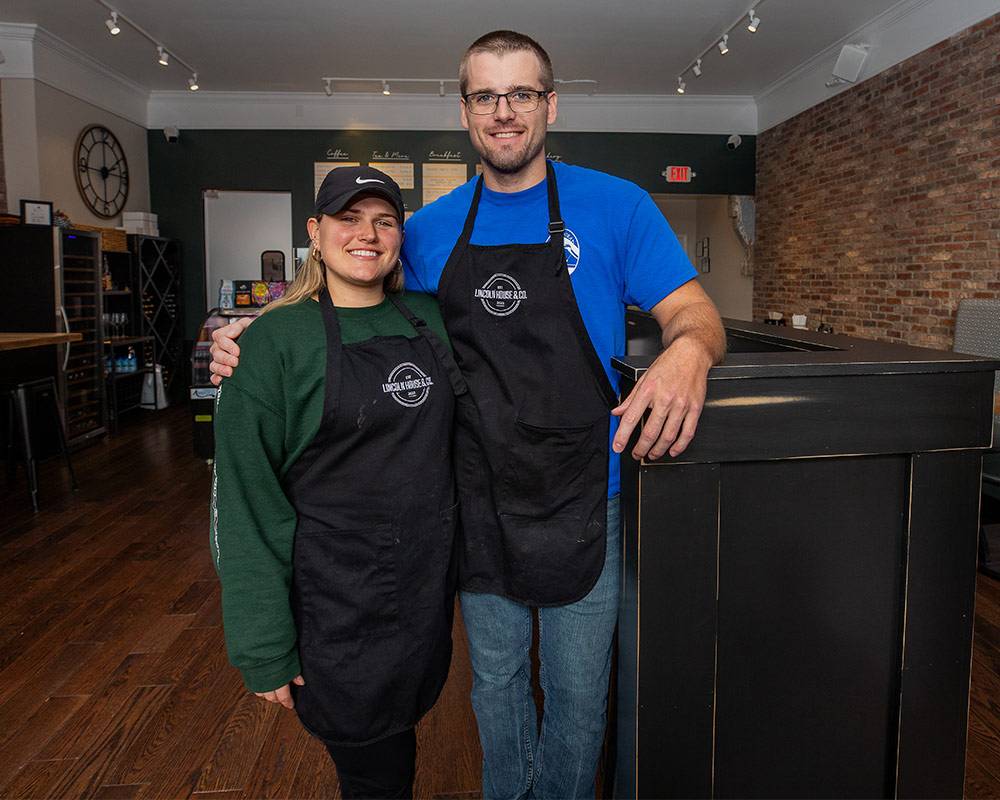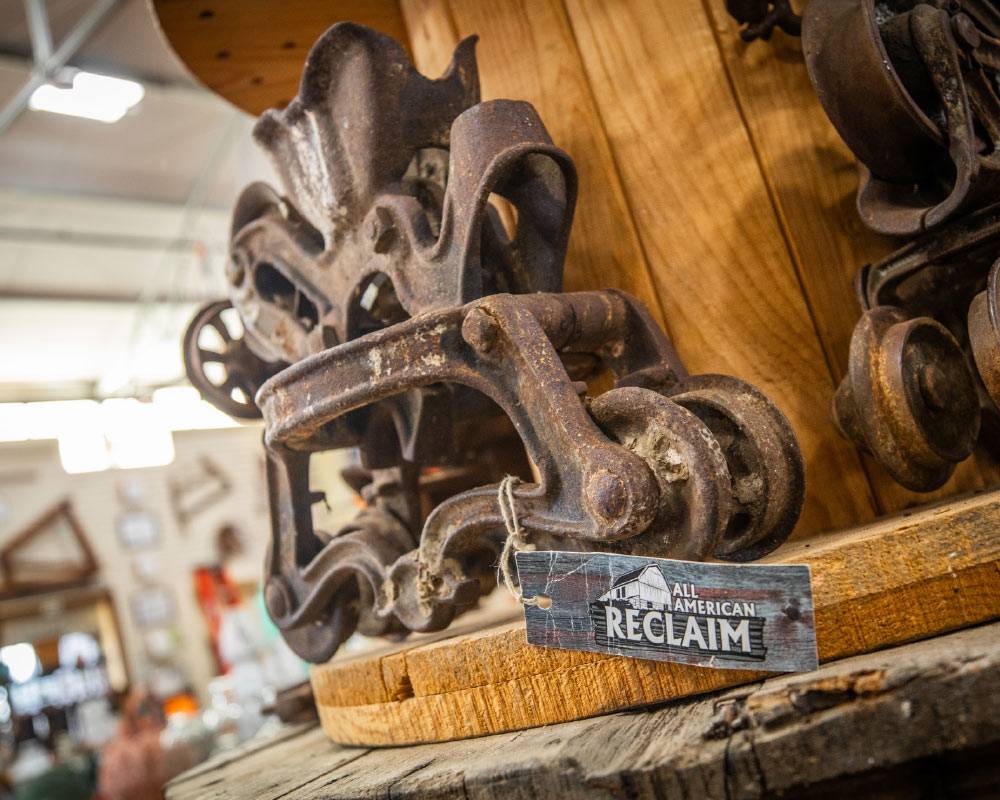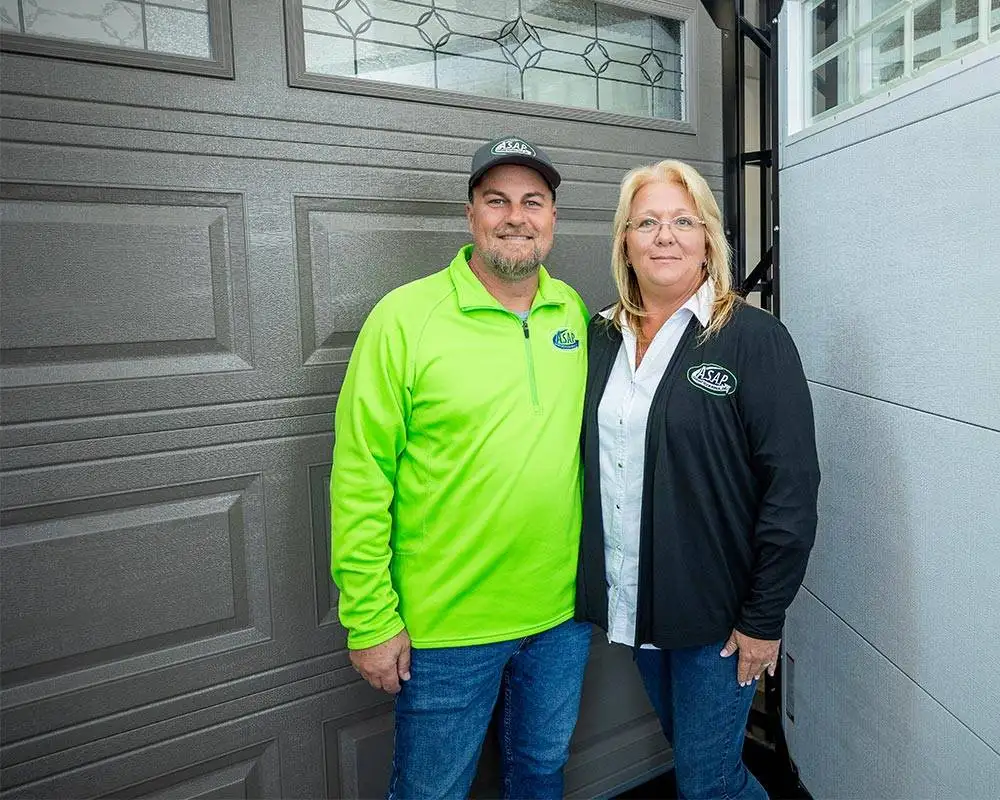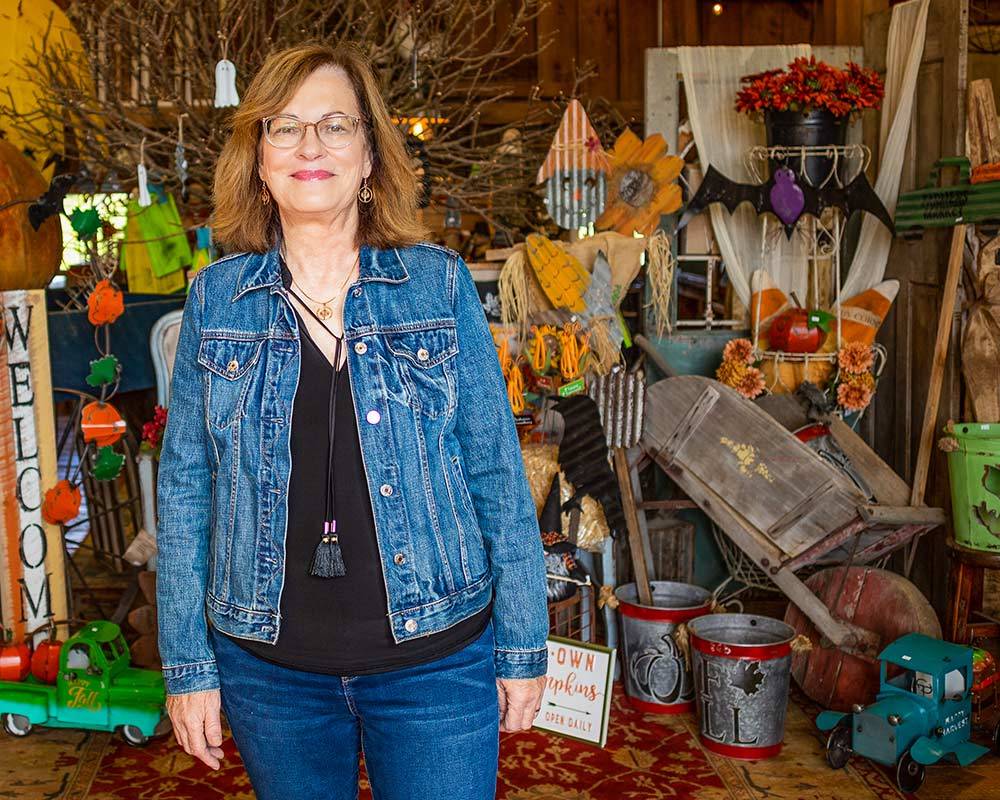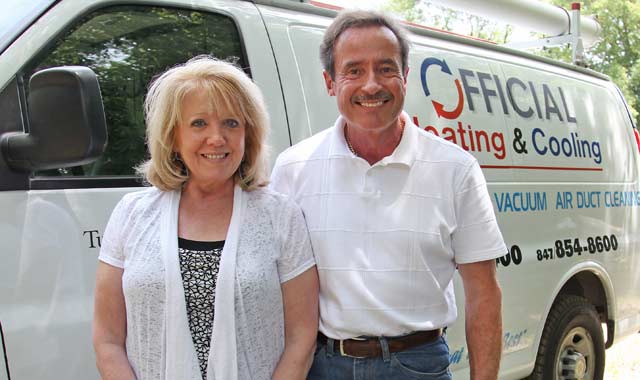Being a nurse involves caring for patients and their families, demonstrating confidence at all times and thinking critically on a daily basis. Learn how a few nurses in our region go beyond what they’re “supposed” to do.

All nurses have a profound effect on their patients physically, emotionally and oftentimes spiritually, but the best nurses usually go beyond normal expectations.
These nurses in the Chicagoland area have started charity events, taken exceptional care of patients with special needs, and even stayed late to help patients Skype with their family members. Step into the everyday lives of some of our region’s greatest heroes.
Going the Extra Kilometer
After experiencing a head injury at age 5, Juli Aistars knew what she wanted to be when she grew up.
“My older sister-in-law was a nurse, and I remember being really impressed with how she took care of me,” Aistars says. “She had me drink clear liquids and stay awake, and even though I was only 5, I just remember feeling really cared for. I wanted to do that for other people.”
When Aistars was an adult, she realized she specifically wanted to care for lung cancer patients. Since 2000, she’s been an advanced practice registered nurse at Northwest Community Hospital (NCH), in Arlington Heights, and she’s been a patient navigator for lung cancer since 2011.
“They used to call it ‘nurse navigator,’ but we changed it because technically, we’re navigating the patient throughout treatment,” Aistars explains.
Even before a patient is diagnosed, Aistars is involved. She leads patients through their lung cancer journey from start to finish, helping to coordinate CT scans, biopsies and all stages of treatment. She also checks in on patients who leave NCH cancer-free, just to make sure they’re staying healthy and not having a recurrence.
Another aspect of her job is helping patients to quit smoking.
“I let them know there are resources, and that we will support them in any way we can,” she says. “Every treatment plan is individual. Every person has their own level of addictiveness; some people can just put it down, other people have a really hard time. I take what they’re telling me and build a plan with them if they’re ready to start on that journey. If not, I help them work on their frame of mind.”
Throughout the whole treatment process, Aistars’ overall goal is to help ease her patient’s anxiety. She listens, answers questions and doesn’t sugarcoat any details.
“I can tell if someone’s really anxious, so I sit down and talk about what they’re worried about,” she says. “Sometimes they think they’re going to be ‘opened up’ during surgery, which isn’t always the case, so I clarify things. And I tell them how, even in Stage IV lung cancer, it’s more treatable than it used to be. I tell them to take statistics with a grain of salt because they’re outdated. We’re doing much better than the statistics indicate. And remember, you are not a statistic.”
Aistars especially enjoys navigating patients who are financially struggling. She doesn’t believe their insurance situation should get in the way of their care. She stands by the philosophy that, “If they live in our community, we’re responsible for them.” This passion has resulted in meetings with various hospital staff members to discuss individual patients.
“We have great resources to help, like financial counselors and an oncology-certified social worker,” she says. “It’s being an advocate and fighting for them like they’re your husband, daughter or family member. That’s how I look at my patients.”
In 2007, Aistars’ passion for fighting lung cancer transcended her normal work hours. She started a fund through the Northwest Community Foundation to assist patients who couldn’t afford lung screenings or tools to quit smoking. Now, the NCH Lung Cancer Fund primarily aids lung cancer patients who struggle with their bills.
Last year, Aistars started the “Pairing Up to Beat Lung Cancer 5K” event to help increase funding available for these patients. Since most everyone has two lungs, the concept is to “pair up and beat lung cancer” by racing with a partner.
“You don’t have to run together, but your times are scored together,” Aistars explains.
The event was a success, and Aistars managed to raise $2,500. But this year, she’s hoping to do even better.
“Last year we gave a stipend to a man who was three months behind on his mortgage, and he and his wife cried, they were so thankful,” Aistars says. “We had 19 pairs last year, so hopefully this year we have more. I really like the idea: a pair of lungs, a pair of runners. It’s a lot of fun.”
The next race is coming up Saturday, Nov. 3. For more information, to register, or to donate visit beatlungcancer5k.com.
Even though Aistars has won numerous awards, including NCH Employee of the Year, she remains humble about her day-to-day work. To her, it’s about being a “secret weapon” for patients.
“I’m on the inside, so I can make things happen,” she says. “What makes this possible is our great physicians and staff who I rely on to get things done for the patient. I like to speed the process up so we don’t waste time. But the main thing I do is instill hope. Whatever your goals, you can’t give up.”
Treating All People Equally
Geoffrey and Kathleen Hyde have been to Centegra Hospital-McHenry a countless number of times over the past 30 years. At first, it was mostly for Kathleen’s mother.
“She had quite a bit of health issues, so if there was a problem, Centegra was the place we went to,” Geoffrey says. “The staff was really good and the nurses treated us well, so we decided to never try another hospital.”
Geoffrey himself has been admitted to the emergency room for a broken arm, and Kathleen rushed in early one morning in need of a couple of stitches.
“She sliced into her finger pretty good,” Geoffrey recalls. “I was starting a new job that day – Kathleen was actually slicing tomatoes for my lunch – so we zipped over to Centegra and hoped it wouldn’t take too long.”
It was 7:15 a.m. when the couple arrived, and Geoffrey still managed to get to work on time at 8 a.m.
But the Hyde family typically winds up at the McHenry hospital for Geoffrey and Kathleen’s sons, Trace, 21, and Charley, 24. Both sons often require emergency medical attention, Geoffrey says, adding that the nurses at Centegra – now part of Northwestern Medicine – have been especially compassionate to both of them.
After Geoffrey and Kathleen’s six biological children grew up and moved out, the couple decided they had room in their lives to start fostering kids. They’ve cared for nearly a dozen children over the years.
“We decided to take kids with special needs because we knew we had the right skill set,” Geoffrey says. “The first few kids were relatively short-term, and then we had Trace come to us.”
Trace was 4 years old when the Hyde family took him in. He was born with trisomy 22, a rare disorder in which chromosome 22 appears three times instead of two in multiple cells. Geoffrey and Kathleen were told that Trace would never be able to talk or eat independently.
“Well, he learned how to eat on his own and he won 12 medals in the Special Olympics for running, plus he made up his own sign language,” Geoffrey beams. “He does have problems as a result of the trisomy, but he’s learned how to live with it.”
The nurses at Centegra helped the Hydes a great deal in the beginning. They were the ones who taught the couple how to care for Trace at home.
Around the same time, Kathleen heard about another little boy – Charley, then age 7 – whose foster parents in St. Louis were retiring. She immediately insisted on taking him in.
“The main problem Charley had was that no one paid attention to him,” Geoffrey says. “He had a fair amount of physical abuse, and as a result of that, he basically just became internal and didn’t respond to the outside world. He doesn’t talk and probably never will.”
But, after a while, Charley learned to trust the Hydes. Sometimes, not every day, he signals to them when he needs something.
“That is a huge step forward,” Geoffrey says.
Occasionally, Charley has seizures and needs medical attention. He’s slowly learned to trust the nurses at Centegra.
“They go out of their way to make sure he has the best experience when he’s there,” Geoffrey says. “When we go in, the first thing they do is bend down and look him right in the eye and say ‘hi’ and talk to him. It makes all the difference in the world, because he begins to interact with them more.”
Geoffrey and Kathleen say they’ve bonded with each nurse they’ve encountered. With an average of five emergency room visits per year, the Hyde family loves their “extended family” found in the Centegra staff.
“We stop in sometimes with a couple boxes of cookies for nurses – Trace loves to hand them out,” Geoffrey says. “They treat my children like they’re people. That’s the best way I can explain it.”
Becoming a Second Family
Thanks to a few great mentors, Jeanne Korzeniowski decided to become a registered nurse. But before that, she had many jobs in a health care setting.
She started as a certified nursing assistant (CNA) at Presence Saint Joseph Hospital, in Elgin, before venturing into clerical and administration work. Though she enjoyed it, others saw greater potential in her.
“I had one person who even set up a job interview for me,” Korzeniowski recalls. “Thanks to a few great mentors, I decided to further my nursing career. You have to find what’s most rewarding for you.”
During her time as a registered nurse, Korzeniowski experienced some powerful moments. One such memory occurred when she was working in the catheterization laboratory, caring for an open-heart surgery patient.
“We care for so many patients who have a chronic illness, so they’re admitted on a regular basis. The hospital becomes their second home, and our unit becomes their second family,” Korzeniowski explains. “When I was a newer nurse, I cared for an open-heart patient who I saw a couple of times. I’ll always remember him.”
While reviewing the patient’s discharge papers and instructions, Korzeniowski mentioned to the patient that he might experience feelings of depression – a normal occurrence after emergent surgery.
“And all of a sudden, this big, burly man just looked at me and started crying,” Korzeniowski remembers. “He thanked me for just acknowledging what he was feeling. I can still see him crying at the side of the bed, realizing that this wasn’t unusual. This was normal.”
Korzeniowski has another patient who will forever stand out in her memory. This time, she was managing the medical oncology/renal unit on the third floor of the hospital, caring for a woman whose cancer prevented her from attending her daughter’s wedding.
“We worked with our information technology department to set up a computer system so she could participate in the wedding via Skype,” Korzeniowski recalls. “This was when Skype was new technology and not readily available. The staff volunteered to stay over-shift to do her hair and makeup and get her dressed. I was proud to see that my leadership encouraged others to take the ball and roll with it. Everything came together perfectly.”
Korzeniowski’s time as a registered nurse was short-lived, however. More leadership responsibilities kept coming. While obtaining her master’s degree in nursing, Korzeniowski continued to advance in her field. Today, she’s a clinical nurse manager at Presence Saint Joseph, overseeing a staff of approximately 50 nurses and CNAs. She’s been at the hospital for 14 years.
“I oversee all operations in the cardiac unit,” she explains. “I staff the unit, interview all applicants, design an individualized orientation program for each of them, do a lot of staff education, plus I prepare and adhere to an annual budget. My goal is to provide patient care in a safe, caring and compassionate manner while ensuring patient safety and quality outcomes.”
It’s no easy feat to manage 50 people and a budget. Since financial results are tied to the unit’s performance, Korzeniowski is constantly role-modeling the behavior she expects of her staff. She also researches best practices to achieve positive outcomes. When she does identify an opportunity for improvement, she goes full steam ahead.
“I love engaging and educating the staff on the rationale behind new processes we create,” Korzeniowski says. “It’s wonderful when we see positive outcomes regarding quality and safety. We share our results and celebrate with our staff because they’re the ones doing the work. We have a lot to be proud of, not just as a unit, but as a hospital.”
No matter what her job title, Korzeniowski’s goal has always been to make each patient’s hospital experience a good one. She’s tired when she goes home, but she feels content in knowing that she worked hard.
“We really do become a patient’s second family,” she says. “It’s such a good thing. We grieve with them, laugh with them – we develop that relationship. It’s beautiful.”













